Edinburgh Zoo panda Tian Tian 'may be pregnant'
- Published
Keepers say Tian Tian is not letting them perform an ultrasound test - but other signs are positive
Edinburgh Zoo has said there are "strong indications" that its female giant panda is pregnant.
Tian Tian's hormone and protein levels, along with changes in her behaviour, suggest she may be expecting a cub, after artificial insemination in April.
Keepers will not know for sure until just before the panda gives birth, which could happen within a month.
A baby giant panda has never been born in the UK, but the zoo's Iain Valentine said: "Things are looking good."
Tian Tian and the zoo's male, Yang Guang, are the UK's only pair of giant pandas.
They arrived in Scotland two years ago and are being rented by Edinburgh Zoo from the Chinese government for a decade for an annual fee of about £600,000.
The pandas, both of whom will turn 10 in the next few weeks, have twice tried and failed to mate naturally.
So in the early hours of 21 April the female panda was artificially inseminated.
Mr Valentine, director of the zoo's giant panda programme, said Tian Tian could have twins by different fathers, one of whom would be Yang Guang.
"We used two different males for the artificial insemination," he explained to BBC News.
"It's hugely exciting. There's never been a baby panda born in the UK."
According to the zoo, several indicators suggest that Tian Tian is pregnant.
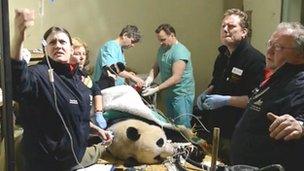
The panda was artificially inseminated after failing to mate with Yang Guang
The first is a spike in the hormone progesterone which is measured by sending the panda's urine samples to the Leibniz Institute for Zoo and Wildlife Research in Berlin.
It was first detected on 15 July and was confirmed this week.
"The hormone concentrations we measured in the urine sample from the panda increased," said Dr Martin Dehnhard at the Leibniz Institute.
"That tells me that she is pregnant or pseudo-pregnant."
A pseudo - or phantom - pregnancy is possible. These are extremely common in pandas, but Edinburgh Zoo is using a cutting-edge test to try to rule it out as a possibility.
The test has been developed by Memphis Zoo in the US. It measures a female panda's protein levels to give an indication of whether she is pregnant and likely to carry the cub to full term.
In Tian Tian's case the results appear to be positive, but the technique is relatively new and scientists are not yet confident enough to declare it 100% reliable.
However there is a third indicator of pregnancy: behaviour, and here too the signs are good.
According to Edinburgh Zoo, Tian Tian is off her food, she is moody and at various stages over the past few months she has been showing "nesting" behaviour.
A more solid indication would come from an ultrasound scan, although even that is not definitive as a panda foetus is tiny - at birth the cub weighs only 150g - and doesn't develop until the final days of pregnancy.
In any case, a scan requires a panda's co-operation and Tian Tian is not obliging.
"We're not going to risk the hand of our vet," Mr Valentine said, explaining why they have abandoned the idea.
It means they will not know for certain whether the panda is pregnant until a few days before a cub is born, which they estimate is likely to happen between 24 August and 10 September.
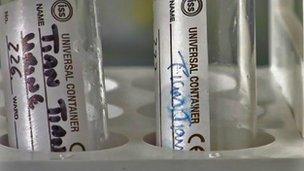
A urine sample taken from Tian Tian showed a spike in the hormone progesterone
Twenty-four hours before giving birth Tian Tian would be expected to become restless and start to bleat.
Two incubators will be on standby in the zoo's panda nursery in case she has twins.
Michael Livingstone, one of the panda keepers, said anticipation in the zoo would turn to elation at news of a cub or cubs.
"I think it'll just explode. I think there's going to be a very big buzz about it.
"It's such an exciting thing so I think it'll go off the scale."
If there are twins, or if Tian Tian is struggling to rear her cub alone, Mr Livingstone would be one of a team of four keepers who would provide round-the-clock care for the newborns.
In keeping with a Chinese tradition, any cub would be named 100 days after the birth.
It would be the property of the People's Republic of China and would be sent there after two years in Scotland.
Establishing a panda cub's sex is tricky and is usually not possible until the animal is between one and three months old.
Parentage would be established by a blood test at around the same time. As well as Yang Guang, the other potential father is Bao Bao, whose sample was frozen before he died at the age of 34 last year.
But is Tian Tian going to give birth?
"Results so far are very encouraging," said Chris West, chief executive of the Royal Zoological Society of Scotland, the charity that runs Edinburgh Zoo.
"But we don't want to count our pandas until they are born."
- Published9 August 2013
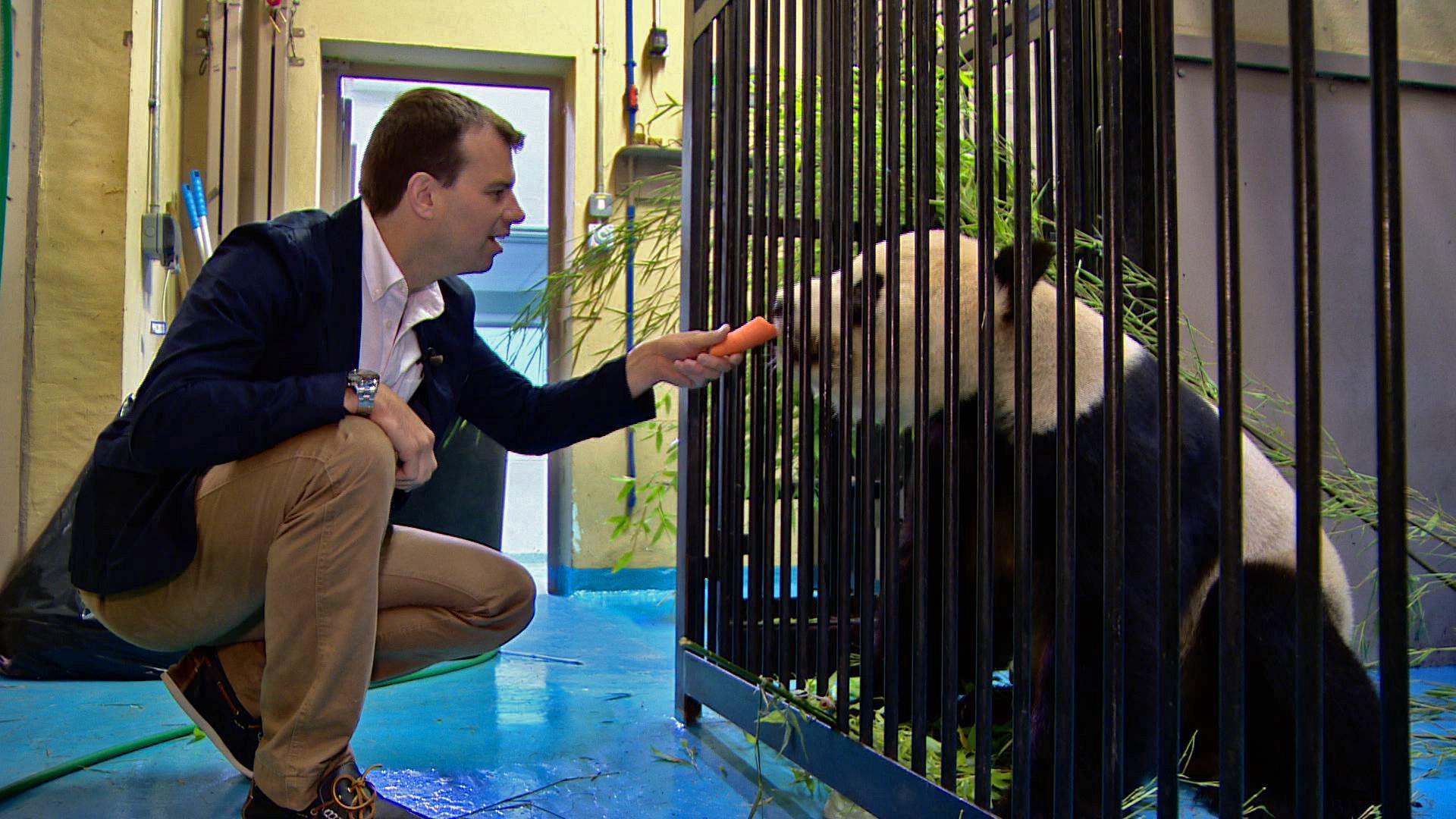
- Published9 August 2013

- Published22 April 2013
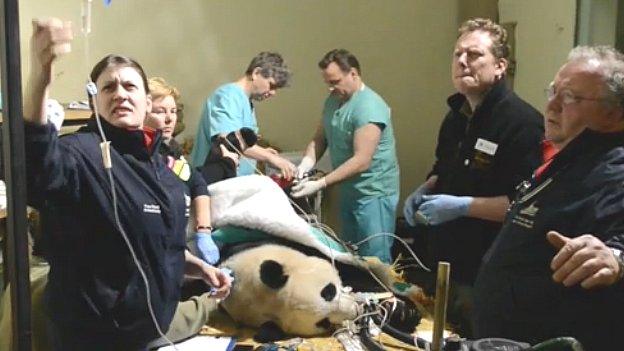
- Published21 April 2013
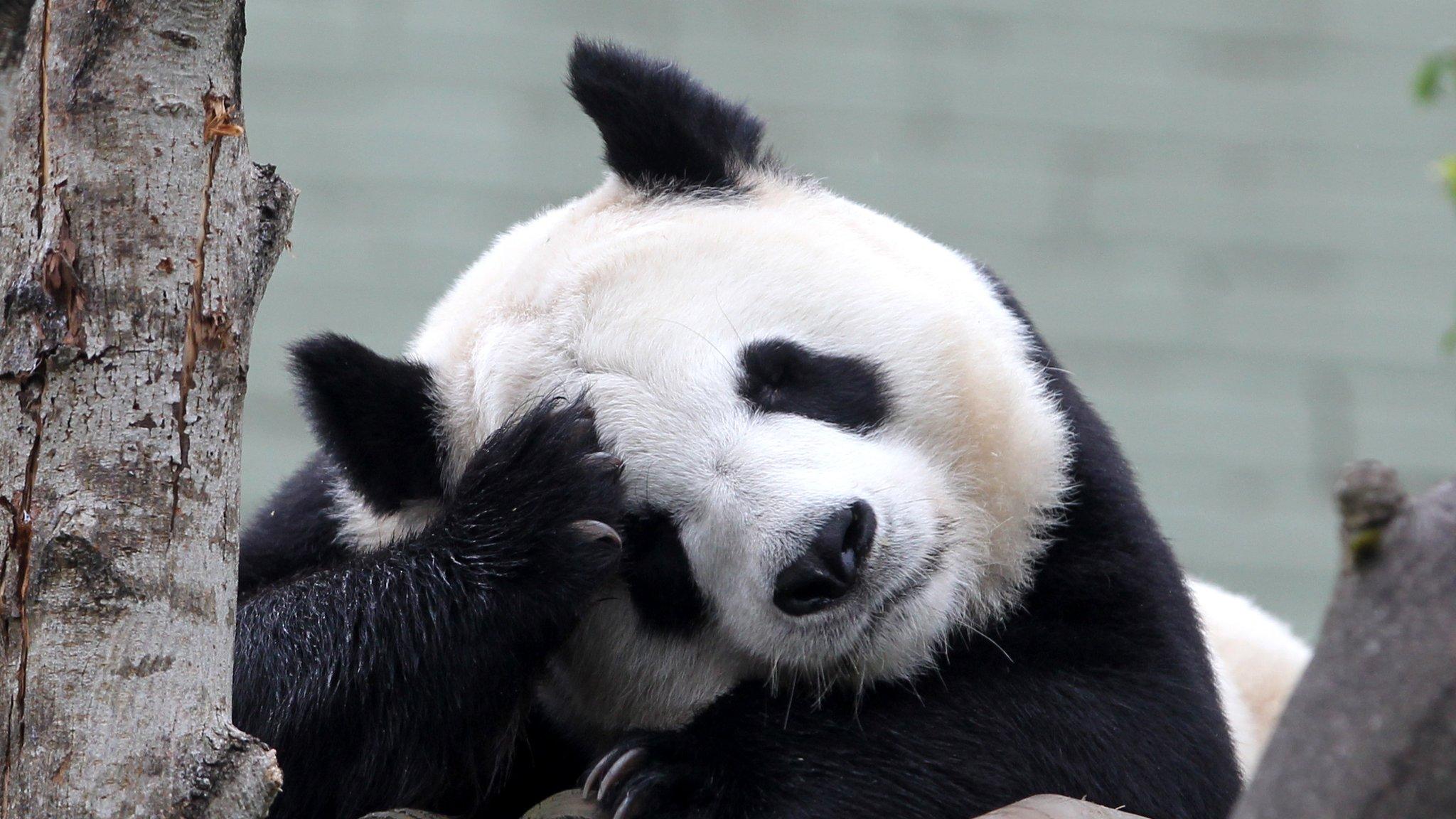
- Published21 April 2013
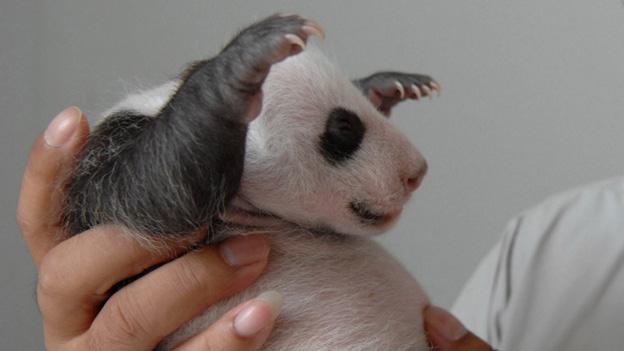
- Published12 August 2014
